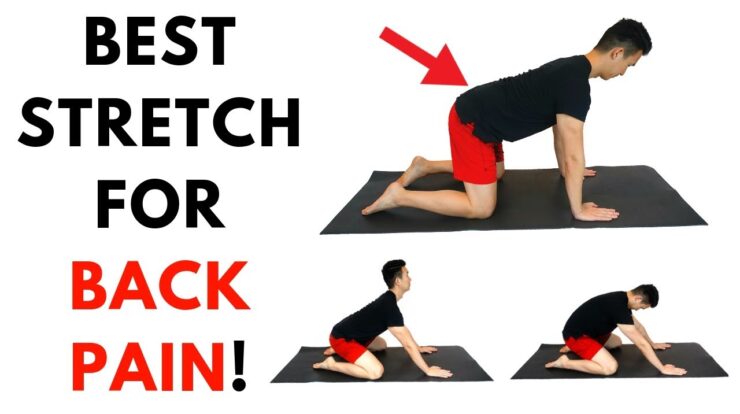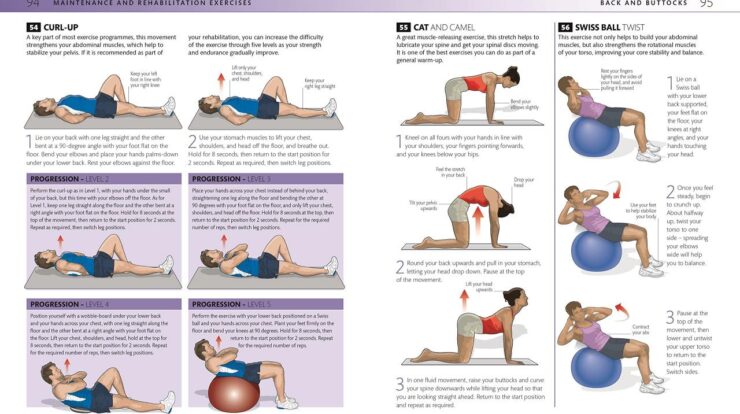
Suffering from gum disease? Don’t fret! Dive into our ultimate guide on how to cure gum disease without a dentist. We’ll arm you with natural remedies, lifestyle tips, and alternative therapies to restore your oral health.
Gum disease, a common yet preventable condition, can lead to discomfort and even tooth loss. But fear not! By understanding the causes and symptoms, and implementing effective strategies, you can take control of your gum health and achieve a radiant smile.
Understanding Gum Disease

Gum disease, also known as periodontal disease, is a common condition that affects the gums and the supporting structures of the teeth. It can range from mild inflammation to severe infection and damage to the jawbone.
There are two main types of gum disease: gingivitis and periodontitis.
There are many ways to cure gum disease without a dentist. You can use natural remedies, such as salt water rinses or tea tree oil. You can also try over-the-counter medications, such as chlorhexidine mouthwash or hydrogen peroxide. If these methods don’t work, you may need to see a dentist for professional treatment.
Click here to learn more about how to cure gum disease without a dentist.
Gingivitis
Gingivitis is the early stage of gum disease. It is characterized by inflammation of the gums, which can cause redness, swelling, and bleeding. Gingivitis is usually caused by poor oral hygiene, which allows bacteria to build up on the teeth and gums.
If gingivitis is not treated, it can progress to periodontitis.
Gum disease is a common problem that can lead to serious health issues if left untreated. While it’s always best to see a dentist for professional treatment, there are some things you can do at home to help cure gum disease.
Click here to learn more about how to cure gum disease without a dentist.
Periodontitis
Periodontitis is a more severe form of gum disease that affects the supporting structures of the teeth, including the bone and ligaments. Periodontitis can cause the gums to recede, which can lead to tooth loss. Periodontitis is usually caused by a combination of factors, including poor oral hygiene, smoking, and diabetes.
Importance of Early Detection and Treatment
Gum disease is a serious condition that can lead to tooth loss and other health problems. It is important to detect and treat gum disease early to prevent it from progressing to more severe stages.
Natural Remedies for Gum Disease

In addition to dental treatments, several natural remedies can help alleviate gum disease symptoms and promote oral health. These remedies harness the power of nature to reduce inflammation, combat bacteria, and support gum tissue health.
Essential Oils
Essential oils extracted from plants like tea tree, clove, and eucalyptus possess potent antimicrobial and anti-inflammatory properties. Diluting a few drops of these oils in a carrier oil, such as coconut or olive oil, and applying it to the affected area can help reduce swelling and kill bacteria.
Saltwater Rinse
A simple saltwater rinse is an effective way to flush out bacteria and debris from the gum line. Dissolve a teaspoon of salt in a cup of warm water and gently swish it around your mouth for 30 seconds, taking care not to swallow.
Repeat this process several times a day.
Green Tea
Green tea contains polyphenols, powerful antioxidants that fight inflammation and inhibit the growth of bacteria. Drinking green tea regularly or using it as a mouthwash can help improve gum health.
Turmeric
Turmeric, a spice commonly used in Ayurvedic medicine, has strong anti-inflammatory and antibacterial properties. Mixing a small amount of turmeric powder with water to form a paste and applying it to the gums can help reduce pain and swelling.
Aloe Vera
Aloe vera is known for its soothing and healing properties. Applying fresh aloe vera gel to the gums can help reduce inflammation, promote tissue regeneration, and kill bacteria.
If you’re looking for a natural way to cure gum disease, you’re in luck. There are a few things you can do at home to help improve your oral health and get rid of gum disease. Check out this guide to learn more about how to cure gum disease without a dentist.
Caution
While these natural remedies can be beneficial, it’s important to use them safely and effectively. Dilute essential oils properly to avoid irritation, and consult a healthcare professional if you have any underlying health conditions. Additionally, these remedies should not replace regular dental care and should be used in conjunction with professional treatments.
Lifestyle Changes for Gum Health: How To Cure Gum Disease Without A Dentist
Maintaining good oral hygiene is essential for preventing gum disease. Brush your teeth twice a day with a soft-bristled toothbrush and fluoride toothpaste. Floss daily to remove plaque and bacteria from between your teeth. Avoid sugary foods and drinks, as they can feed the bacteria that cause gum disease.
Dietary Choices
Certain dietary choices can affect gum health. Eating a healthy diet that includes plenty of fruits, vegetables, and whole grains can help to improve your overall health and well-being, which can benefit your gums. Some specific foods that are good for gum health include:
- Fruits and vegetables: Fruits and vegetables are high in vitamins and minerals that are essential for healthy gums. Vitamin C, for example, is necessary for the production of collagen, which is a protein that helps to keep gums strong and healthy.
- Whole grains: Whole grains are a good source of fiber, which can help to remove plaque and bacteria from your teeth. Fiber also helps to promote saliva production, which can help to neutralize acids in the mouth that can damage your gums.
- Dairy products: Dairy products are a good source of calcium, which is essential for strong bones and teeth. Calcium can also help to neutralize acids in the mouth that can damage your gums.
Stress Reduction, How to cure gum disease without a dentist
Stress can contribute to gum disease by weakening your immune system and making it more difficult for your body to fight off infection. If you are under a lot of stress, try to find ways to relax and de-stress. Some helpful stress-reducing activities include:
- Exercise: Exercise is a great way to relieve stress and improve your overall health. Aim for at least 30 minutes of moderate-intensity exercise most days of the week.
- Yoga or meditation: Yoga and meditation can help to reduce stress and promote relaxation. There are many different types of yoga and meditation, so find one that works for you and fits into your lifestyle.
- Spending time in nature: Spending time in nature has been shown to reduce stress and improve mood. Try to spend some time each day outdoors, even if it’s just for a short walk or hike.
Alternative Therapies for Gum Disease

Alternative therapies for gum disease offer potential benefits as complementary treatments alongside traditional methods. These therapies include acupuncture, herbal supplements, and laser therapy.
Gum disease is a common problem that can lead to serious health issues if left untreated. While it’s always best to see a dentist for proper diagnosis and treatment, there are some things you can do at home to help cure gum disease.
For more information on how to cure gum disease without a dentist, check out this helpful article: how to cure gum disease without a dentist . The article provides step-by-step instructions on how to cure gum disease without a dentist, as well as tips on how to prevent it from coming back.
Acupuncture
Acupuncture involves inserting thin needles into specific points on the body to stimulate the release of endorphins and reduce inflammation. Studies have shown that acupuncture can improve gum health by reducing bleeding and pocket depth.
Herbal Supplements
Certain herbal supplements, such as green tea extract, curcumin, and aloe vera, have anti-inflammatory and antibacterial properties that can benefit gum health. However, it’s important to consult with a healthcare professional before using herbal supplements, as some may interact with medications or have side effects.
Laser Therapy
Laser therapy uses a concentrated beam of light to target and remove diseased tissue from the gums. This technique can effectively reduce inflammation, bleeding, and pocket depth, promoting gum regeneration.
When to Seek Professional Help
Gum disease can progress silently, often without noticeable symptoms in its early stages. However, as it advances, certain signs and symptoms may indicate the need for professional dental care.
If you experience any of the following, it’s crucial to schedule an appointment with your dentist:
Swelling and Redness
- Swollen or puffy gums
- Gums that are red or purple in color
Bleeding
- Bleeding gums while brushing, flossing, or eating
Receding Gums
- Gums that have pulled away from the teeth, exposing the roots
Pus
- Pus between the gums and teeth
Loose Teeth
- Teeth that feel loose or are moving
Bad Breath
- Persistent bad breath or a metallic taste in the mouth
Pain
- Pain or sensitivity in the gums or teeth
In addition to these signs and symptoms, regular dental checkups are essential for early detection and prevention of gum disease. During these appointments, your dentist will examine your gums, teeth, and mouth for any signs of disease and provide professional cleaning to remove plaque and tartar.
If gum disease is diagnosed, your dentist will recommend the appropriate treatment options based on the severity of the condition. These treatments may include scaling and root planing, antibiotic therapy, or surgical procedures.
Final Thoughts
Remember, maintaining good oral hygiene, adopting a healthy lifestyle, and exploring alternative therapies can significantly improve your gum health. However, if symptoms persist or worsen, don’t hesitate to seek professional dental care. With the right approach, you can bid farewell to gum disease and embrace a healthier, more confident smile.
General Inquiries
Can I cure gum disease completely without a dentist?
While natural remedies and lifestyle changes can improve gum health, severe cases may require professional dental intervention.
How long does it take to cure gum disease naturally?
The duration varies depending on the severity of the condition and individual response to treatment.
Is it safe to use natural remedies for gum disease?
Always consult a healthcare professional before using natural remedies, as some may interact with medications or have potential side effects.





